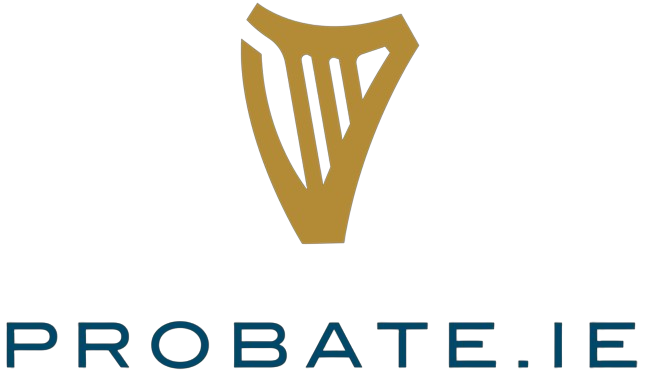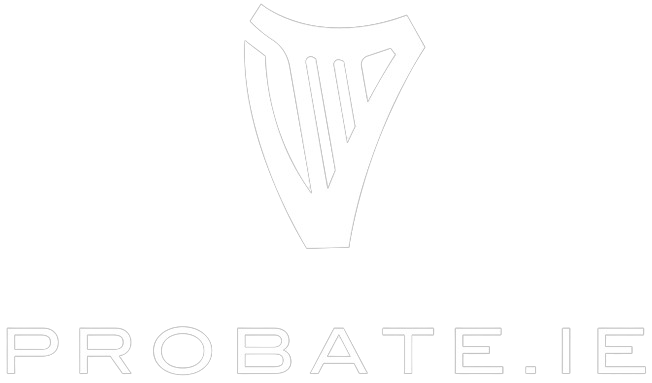Enduring Power of Attorney (EPA)
Understand, Decide, Choose and Create
An Enduring Power of Attorney is a ‘just in case’ document allowing you to appoint control of your personal and financial affairs to somebody you trust if there comes a time you cannot make these decisions yourself.
Losing your mental capacity is defined as losing the ability to make your own decisions, financial and/or personal. You can lose your capacity in a number of different ways whether it is through stroke, learning disability or through a range of mental illnesses.
Let’s take dementia, for example, this is one mental illness that most people would have either a level of understanding of or experience with. There is no age limit of dementia; there have been cases of people in the 30s, 40s and 50s having being diagnosed with dementia. In fact, one in 10 people diagnosed with dementia are under the age of 65. According to the HSE, it is estimated that 55,000 people in Ireland are living with dementia and over half a million of us have a family member with dementia. The statistics are startling; 4,000 people develop dementia each year, this equates to approximately 11 people every day.
One way you can ensure that their personal care decisions and financial decisions are carried out as you wish, should you lose your capacity, is by putting in place an Enduring Power of Attorney.
Understand | What is an Enduring Power of Attorney?
This is a ‘just in case’ document by which you appoint another person or people to act on your behalf to make your personal care decisions and financial decision for you if you can no longer make your own decision for yourself.
The person who makes the EPA is called the ‘Donor’ and the person that is appointed to deal with their affairs on their behalf is called the ‘Attorney’.
It has no effect until the Donor has lost their mental capacity. To prove the person has lost their mental capacity the Donor must be given a medical diagnosis. Once diagnosed as having lost their mental capacity, there is a registration process that must be undertaken before the the EPA can be activated and the Attorney can then proceed to deal with the Donor’s affairs on their behalf and as they wished.
In some cases, mental capacity can be lost for a short period, for example in the event of a coma. In this case, the Enduring Power of Attorney can be activated and should the Donor awake from their coma and regain their mental capacity it can be cancelled by the Court.
When should I set one up?
It can be put in place at any time. It is advisable to have one in place as early as you can. In the event, that an accident or illness suddenly takes over and a person cannot make their own decisions it may be too late to put an EPA in place. The best advice is to set one up when you are healthy and have the mental capacity to do so.
Who can make one?
It can be made by any person over the age of 18 who has mental capacity. It is important to note that if you do not hold any financial assets, your Enduring Power of Attorney can still deal with your personal care decisions.
What does losing mental capacity mean?
Being unwell or having been diagnosed with some mental illnesses does not mean you have lost your mental capacity to make your own decisions. If it is deemed that you cannot make your own decisions and if you cannot understand, cannot remember or weigh up information to make a decision or if you cannot communicate your decisions, you may be deemed to have lost your mental capacity. It is critical that a doctor diagnose you to have lost your mental capacity. The current test in Ireland to determine whether somebody has lost their capacity is to determine if they can:
- Understand the information present to them relevant to the decision that must be made
- Retain that information long enough to make a decision
- Weigh that information as part of the decision-making process, or
- Communicate their decision
We advise that you seek medical attention if you are worried about yours or a loved one’s ability to make their own decisions as you may need to start considering an EPA.
Decide | What powers you will give your Attorneys?
It is important to carefully choose the level of decision-making power you give your ‘Attorney(s)’ as the EPA can cover both your personal and financial decisions.
Financial Decisions
Financial decisions usually refer to, but are not limited to:
- Running of your bank accounts
- Running of your savings accounts
- Selling or making investments
- Paying your ongoing bills
- Buying or selling property
Personal Decisions
Personal decisions covered usually refer to, but are not limited to:
- where the person should live
- with whom the person should live
- whom the person should see and not see
- what training or rehabilitation the person should get
- the person’s diet and dress
- who should be allowed to inspect the person’s personal papers
- housing, social welfare and other benefits for the person.
Choose | Your Attorneys and Notice Parties
This is an important step in making an Enduring Power of Attorney as you are handing over a significant amount of responsibility to the person(s) you choose. Usually, the people appointed to make your personal and financial affairs are your next of kin. It can be of benefit to appoint more than one Attorney.
Most people appoint one or two Attorneys to act, some people also appoint substitutes. It is important that you take the following into account when choosing an Attorney:
- Who are your attorneys? Are they your next of kin, family member, friends and do you trust them?
- How will they work together? Is there anything that may stop them from making a joint decision?
- Are there any restrictions you might want to put on your attorneys with regards certain decisions?
- Do your attorneys understand how you would like them to make decisions for you?
How should my Attorneys act – jointly or separately?
If you appoint more than one Attorney to act on your behalf then you must make a decision as to how they will make decisions, i.e. can they make decisions independently, separate from each other or must they make decisions together.
-
Joint Decision Making
In this scenario, Attorneys cannot make decisions independently and must make your personal and financial care decisions together. This is often chosen to ensure that your decisions are made for you in your best interest. All decisions must be unanimous and where documentation is involved they must all sign.
If your attorneys can’t collaborate or reach agreement, they might not make decisions, posing a risk.If one Attorney dies or refuses to act, your Enduring Power of Attorney may not be effective unless you have appointed a substitute Attorney to step in in this event
-
Jointly or Independently
Often referred to as ‘jointly and severally’, in this option attorneys can make decisions jointly as well as independently from each other. This option does harbour some benefits, i.e. it is more flexible, urgent decisions can be made quickly for you and if one attorney cannot act or dies then your EPA will continue without the need for a substitute Attorney.
-
Do Attorneys get paid to take care of my decisions?
In general, attorneys do not get paid to handle your personal or financial affairs. However, you can make provision in your Enduring Power of Attorney for your Attorneys to be financially compensated if you wish. Remuneration is rarely provided, especially when next of kin serve as Attorneys.
-
Who are your notice parties?
You must inform your Attorneys of the responsibility you will give to them and you are also obliged to notify two other people of the fact that you have made one. The other two people you notify are called your ‘Notice Parties’.
Your Notice Parties must be:
- If married or in a civil partnership, your spouse or civil partner (if living with you and not your Attorney)
- Your child
If you do not have a spouse, civil partner or child then you must choose two relatives to be your Notice Parties.
Your Notice Parties are then notified again if the EPA needs to be actioned.
Create | Your Enduring Power of Attorney
Create an EPA quickly and easily. Gain peace of mind, knowing your personal and financial decisions are secure if you lose capacity.
Contact Probate.ie
It is important that you involve a solicitor when creating this document. Ensure everything is done correctly so you can execute and register the EPA as needed. When you meet with your solicitor you will talk through all aspects of the process. It is a good idea to think about the following information before meeting with your solicitor:
You will need the following information:
- Name and address of your chosen attorneys and substitute attorneys where applicable.
- Contact details (Name and Address) of your doctor
- Name and address of your notice parties
- Detail of the level of power you will give (joint or separate decision-making powers)
- Details of your financial/personal care instructions.
If you do not know all this information or not sure about what you might need, do not worry, this is what we are here for as your solicitor, to talk you through all this and make the process as simple as possible.
As per the Powers of Attorney Act, 1996 the Enduring Power of Attorney must include the following documents:
- Statement by the donor (person creating the document) to say that they have understood the effects of creating the document
- Statement from a doctor to say that the donor had the mental capacity to understand
- Statement from a solicitor that they are satisfied that the person had the mental capacity to understand the effects of the document
- A statement from a solicitor to say they are satisfied that the person is not operating under undue influence (influence by which a person is induced to act otherwise than by their own free will when creating the document)
Talk to us first
This one document when correctly put in place offers great peace of mind for you and your loved ones. If you don’t have one and lose decision-making ability, the court will deem you a ward. The wardship process is complex and costly and is completely avoidable by simple creating an Enduring Power of Attorney.
For more information on what you need to do and how quickly you can put one in place talk to us first by calling 01 234 3732 or emailing info@jrplunkett.ie and we would be delighted to assist you.
Read John’s Story…
John was showing indications of Alzheimer’s and his family were getting worried. John’s wife passed away a few years previous and he had one surviving son. They decided to put an enduring power of attorney in place, just in case John was to lose his capacity to make his own decisions. With the help of a solicitor, John created his EPA. He notified his brother and sister. His son became the attorney.
Soon after this event, John lost his capacity. Consequently, he couldn’t make his own decisions. Therefore, he was admitted to a nursing home for specialist care. John was in a nursing home. To cover the costs, his house was rented out. Unfortunately, a tenant-caused fire damaged the property.
At this point, the property became a burden and the decision to sell the property was made. John couldn’t make the decision himself. His attorney made the decision. The EPA had to be invoked.
John needed an EPA. Without it, he would’ve become Ward of Court. Selling the property would have been tough. Ensuring John’s wishes might have been a long, stressful process. John remained in the nursing home for 5 more years.







